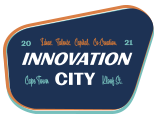
16 Oct The South African Startup Ecosystem Report 2022
Tech-driven innovation has changed the world and the way we live in it. Innovation tends to take different forms in different contexts – while in developed countries it tends to be focused on enhancing efficiency and productivity (moving from traditional taxis to Uber; stopping the rental of physical movies in favour of streaming etc), innovation in developing countries typically solves for the problems faced by the poor (accessing low cost and high quality healthcare and education; economic inclusion by providing the unbanked with access to finance etc).
In this context, the dramatic growth in the volume of venture capital deals done in South Africa over the past few years is very welcome. As is shown in the funding section of this report, the value of investments in VC grew from a little over US$50 million in 2015 to close to US$350 million in 2021. The number of deals concluded also grew substantially in this period, from a total of 45 in 2015 to 89 in 2021.
While this increased activity has helped mature the VC ecosystem in South Africa, many gaps and challenges persist.
• The need for quality acceleration of high potential startups: There are a plethora of incubators in South Africa, both in the private and public sector, yet few offer the kind of value-add that startups need to place them on a path to growth. One accelerator that does provide skilled guidance and support to startups is Grindstone, a structured entrepreneurship development programme that assists high-growth, innovation-driven companies to get the fundamental building blocks in place to scale quickly and become sustainable and fundable. Grindstone is also paired with a venture capital fund, Grindstone Ventures, which focuses on investing in high growth ventures coming
out of their accelerator programme.
• Seed funding: Much more capital is needed for seed funding for very early-stage start-ups. This will allow more throughput of startups into the funnel at the top of the VC market, to build a sustainable pipeline of investible deals by more mature VCs. Digital African Ventures (DAV) is one such seed investor in South Africa, which focuses on bridging the funding gap in early stage technology ventures.
• Appropriate regulatory frameworks: Simplifying regulations affecting startups and removing bureaucratic constraints to their growth is desperately needed if this sector is to flourish. A set of regulation that supports and incentivises early stage businesses can go a long way in bridging this gap. A South African “Startup Act” is one potential solution to achieving this outcome.
• Better development of IP into commercialised entities: Despite over ZAR10 billion a year being spent on R&D in highly regarded South African universities and Science Councils, there are few sources of capital focused on taking these technologies to market, unlike in most other industrialised countries. To begin to address this gap, the University Technology Fund (UTF) was launched in 2019 (as the first fund of its kind on the continent) to invest in high potential companies emanating from South African Universities.
Ultimately what is most needed is more capital to be channelled towards VC in South Africa. Yet South African institutional investors have steered clear of investing in this asset class, because of a misconception that the risks in VC are too high, and that investing in VC
requires a trade-off between impact and financial performance. The data does not support this. In fact, investors in VC can make money and make a difference. This is certainly the case in mature VC countries, where the asset class is considered an essential part of a diversified portfolio for institutions as varied as pension funds and university endowment funds.
The Disrupt Africa team is delighted to present to you their 17th research publication, and their second geographically-focused report, with the South African tech startup ecosystem as the subject.
Read the full report HERE.



